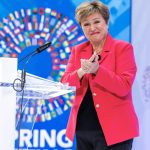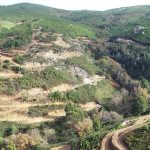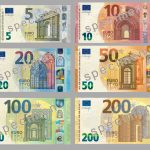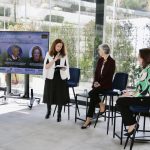The art of doing business in Saudi Arabia – the new ‘Mecca’ for Portuguese developers
When it comes to doing business in Saudi Arabia, no one knows better about the challenges and opportunities in this fast-growing market than Pedro Ribeiro, General Manager CBRE Kingdom of Saudi Arabia who was voted ‘Arabia’s most remarkable general manager for making an impact in 2024’ by US magazine Business Mind Media.
Text: Chris Graeme Photos: supplied
To many the Kingdom of Saudi Arabia is seen as closed and secretive country ruled by oligarchic tribal leaders controlled by a royal family with an appalling human rights record. But is that the whole story?
People might be surprised to learn that Saudi Arabia is opening up to international business and making serious reforms aimed at improving its business climate in one of the world’s largest economic revolutions ever undertaken by a country in modern times through the programme Saudi 2030.
Problems still persist though. Saudi Arabia comes in 62nd place in the Doing Business ‘Ease of Doing Business Index’. Nevertheless, it has undertaken significant business climate reforms and now ranks in 19th place in its ‘Ease of Registering Property Index’ thanks to the recent Ownership Law, as well as coming in 28th place when it comes to the ‘Dealing with Construction Permits Index’.
Pedro Ribeiro says ‘The Ownership Law’ is particularly important because it will allow an individual, company or corporate entity to buy and own land in Saudi Arabia without being physically in the country.
“For the construction, development and real estate ecosystem this law will be a game-changer”, he says.
Now, after around six years of discussion, they have changed the old laws with the result that the new safeguards in the real estate sector boosted transactions by 17% in the first year. “Five years ago no one could have seen this ever happening.”
Pedro Ribeiro says that the challenge for Middle Eastern countries is to upgrade their urban offer and diversify their economies away from being primarily oil-export economies.
Saudi Arabia, he points out, is undergoing massive infrastructure development and it is important for would be Portuguese companies to have a detailed grasp on the well known and successful Saudi companies and entities within the construction environment before approaching them for the many opportunities that exist.
Dubai – an example to follow
As for Portugal and Portuguese companies that aim to enter the market and win contracts, the first and easiest step is to do it through Dubai in the United Arab Emirates.
“Saudi Arabia is still a tough market to penetrate and is not as well developed as Dubai which is a place of connection and is a more developed and mature city.
“Normally, for companies with an expansion plan in the Middle East, the easiest way is to set up a company or joint venture in Dubai which has the same level of business maturity you would find in London, Paris or New York”, he says.
Pedro Ribeiro explains that the Saudis have looked to Dubai as an example of how to think, plan and deliver given that Dubai succeeded in modernising in just 20 years. “Saudi doesn’t have that long experience. It has only been opening up over the past four to five years with Saudi Vision 2030”.
This is a government programme which aims to achieve the goal of increased diversification economically, socially, and culturally in line with the vision of Saudi Crown Prince and Prime Minister Mohammed bin Salman. It was first announced on 25 April 2016 by the Saudi government.
The project is also seen as vehicle to reduce the country’s dependence on oil which accounts for around 40% of Saudi GDP and 75% of its tax revenues.
Another major aspect is to lower the dependency of the country’s citizens on public spending subsidies, higher salaries, and increasing the portion of the economy contributed by the private sector to provide more employment opportunities. The goals in Saudi Vision 2030 can be compared with other development plans in the Middle East, such as Kuwait Vision 2035, Egypt Vision 2030 and UAE Vision 2021.
“If you understand this and are a Portuguese company you should be aware that most of these projects in Saudi Arabia have to be completed by 2030 where 57% of the total construction in the world is taking place. Naturally, all the international developers want to have a piece of this pie”, he says, adding that the total project is worth over US$3 trillion which makes it a “very hot market for construction” and “now is the time to invest” in the Saudi market.
Gaining trust
However, Pedro Ribeiro points out that Saudi Arabia is still an old-fashioned market and you need to shake hands with the people and gain their trust.
Working in the kingdom for the past eight years he has worked closely alongside the Portuguese Ambassador to Saudi Arabia in Riyadh, Nuno Mathias.
“We have received a lot of requests for meetings from Portuguese entrepreneurs, companies and startups wanting to do business in Saudi to understand what is happening in the country.
“Doing business is conducted in English but if you make the effort of learning Arabic it’s a plus. Even in cities like Medina and Mecca there are infrastructure projects being developed that are being lead by expats”, he continues.
Nevertheless, Pedro points out that there are differences in customs and the way of doing business.
“We live in a fast-forward way of doing business in the Western world but Saudi is not really like that. You have to meet the people involved, explain what your added value would be as an entrepreneur for the local company you want to do business with”.
This means that doing business takes a little longer than in Western countries, and in the past business took even longer than it did in other countries in the Middle East.
For example, for mixed-use projects the timeframe from conception, strategy approval, budget setting, construction and opening should take three to three and a half years today.
Before a company needed five to six years for the same project. “Our idea at CBRE KSA is to shorten this gap in terms of both time and quality”.
That said, Portuguese companies are regarded highly in Saudi Arabia because they have experience and work all over the world. It’s seen as a mature player in the construction field and offers solutions for what the Saudis want to achieve now.
Projects to diversify and modernise the Saudi economy
The Saudi programmes have two goals – to open up the country, and revamp and increase the secular infrastructure offer, and through these projects attract tourists which requires hotels, resorts and other infrastructures in the Saudi market.
“The world is not aware of the natural resources and natural beauty that Saudi Arabia has, particularly in the mountain regions”, says Pedro Duarte who has worked in the Middle East for 12 years – one in Dubai, four in Qatar, and now seven in Saudi Arabia.
Pedro points out that Saudi Arabia is not only dessert. “It has the Red Sea coast which is an amazing and unique natural location” where footballer Cristiano Ronaldo likes to holiday.”
And although it is true that the country, which is the size of Western Europe, is 95% dessert, the Saudi Green Initiative launched in 2021 aims to turn 30% of Saudi Arabia’s land into nature reserves; planting 10 billion trees and restoring 40 million hectares of degraded land.
A leap of faith
Pedro Duarte says entrepreneurs need to take a leap of faith. “Most people when they think about Saudi don’t imagine that this offer exists”.
“It is our responsibility to do two things: open up awareness and change perceptions by dispelling pervading negative notions about the country, and bring this amazing experience and these opportunities to the attention of company operations managers”.
“From the business and professional side, companies should be aware that Saudi Arabia has €3Tn to spend on projects. However, the authorities can be somewhat suspicious and skeptical because every company now wants to come and take advantage of these development opportunities. The authorities need convincing that these companies have a good track record, are reliable and competent partners that can bring added value to the local economy,” he warns.
An easing of regulations and red tape
In terms of regulations Pedro says there are still obstacles, but the Saudi government and key ministers are aware of the complexity and have taken steps to mitigate this and make the market more business-friendly both legally and in terms of regulations.
“They are now very eager to fast-forward changes in the laws finally taking concrete decisions on ideas discussed at their National Investment Forum”, he says.
Saudi Arabia – much misunderstood
Pedro Duarte says that there is a significant misunderstanding about the changes and projects in Saudi Arabia.
Saudi, he says, is investing trillions of dollars into the economy, as well as becoming more open to overseas investment from large international powerhouse investment companies, allowing them to support the country’s development with their investments and experience.
“These companies are also advising on speeding up the process of making it easier to do business. It’s still not as easy as in Dubai but from what we’re seeing things are changing fast”, he notes.
“The best advice I could give to a Portuguese or any other nationality of entrepreneur thinking of doing business in Saudi Arabia is that they need to come here and see what’s happening with their own eyes”.
This is important, he says, because there has been so much accumulated negativity surrounding the country and its human rights record, and many of these misconceptions and abuses are outdated and don’t happen anymore.
“Saudi Arabia is becoming a very progressive country in which to work and live and there are no taxes. If you are working in specific management capacities you can earn a life-changing salary,”
Pedro remarks.
The main problem doing business may still be the bureaucracy but from the profitability point of view CBRE KSA enjoys the second highest profitability margin of its offices worldwide.
CBRE has a team of 400 working in Saudi at its two offices in Riyadh, its office in Jeddah, and teams working on Neom – a new planned city and global trade hub being built in Tabuk province with completion scheduled for 2039 – as well as teams operating in Medina (Rua Al Madinha project) and Al-Ula (Al-Ula Vision project).
Last, I ask him about being voted ‘Arabia’s most remarkable general manager making an impact in 2024’ by US magazine Business Mind Media.
“At a certain level I was surprised and still am, but I have had an amazing team working with me over the past three years and am proud that we have been involved in this transformation of Saudi Arabia and bringing our added value and know-how to the market as global leaders,” Pedro Duarte, General Manager of CBRE KSA concludes.
About Pedro Duarte:
Born in Cascais and trained in Management, Pedro Ribeiro initiated leadership roles at Levi’s in 1996.
Pedro’s first major recognition came in 2006 when the outlet Factory Vila do Conde won ‘The Best Mall in Europe award’. (European Shopping Centre Awards)
The executive emigrated to Qatar in 2013, working on the Mall of Qatar project, and in 2017 moved to Saudi Arabia where he was involved in award-winning projects such as the Riyadh Park Mall; voted the Best New Shopping Center in the Middle East in 2018; and the Panorama Mall; awarded the Best Renovation Project in the shopping center sector.
In 2022 Pedro was appointed General Manager at the commercial and real estate services and investments consultancy CRBE KSA. (Saudi Arabia)
Pedro Ribeiro coordinates a team of 120 professionals and is involved in the development of billion-dollar mega projects aimed at modernising and refocusing the Saudi economy within the scope of the Vision2030 plan. This plan aims to reduce the kingdom’s dependence on oil and reinvent the country into an epicenter of innovation, tourism and sustainability.
The futuristic metropolis NEOM is the largest project in the Vision2030 plan, representing some US$500Bn of investment on a site covering 26,500Km2 powered by 100% renewable energy. The highlight of the NEOM megaproject is The Line, an innovative horizontal city that will stretch over 170 kilometers.
The Portuguese manager is also involved in the construction of Qiddiya Entertainment City, which aims to become the largest entertainment, culture and sports city globally – with an estimated investment of US$350Bn and New Murabba, the new downtown area of Riyadh, which will cost US$50Bn and will revolve around The Mukaab. Popularly known as the “Cube”, it is a unique architectural building measuring 400 metres high, wide and long – big enough to fit 20 Empire State Buildings.
Saudi Arabia is also preparing to host large-scale events such as Expo2030, the 2029 Asian Winter Games, the 2034 Asian Games and the 2034 World Cup. FIFA has confirmed Saudi Arabia as host of the 2034 World Cup with CBRE KSA an important partner of the Saudi Arabia Public Investment Fund in the planning and execution of its projects.
The real estate market in Saudi Arabia
The year 2024 saw record residential sale transactions Riyadh, Jeddah and Dammam with Riyadh transaction volumes up 51.6% to 18,500 sales worth around €7Bn. In Jeddah sales rose 56.1% and Dammam, 49.8%.
In terms of offices, occupancy rates are close to capacity with new supply expected to come on line in 2H 2025.
In tourism, Saudi Arabia saw 60 million visitors in H1, 2024, up on 2023 with modest increases in RevPAR and ADRs.
The industrial sector continues to benefit from significant government investments in infrastructure and other initiatives aimed at raising domestic manufacturing production across all sectors.










